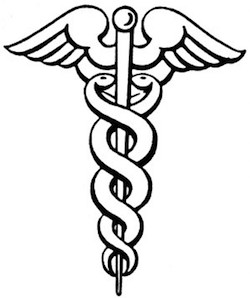Threshold for Medical Expense Deduction Rises for Most Taxpayers in 2013
 One income tax deduction that many experts identify as among the most frequently overlooked is unreimbursed medical and dental expenses. The rules surrounding this deduction, however, prevent several taxpayers with these expenses from claiming the deduction, and new rules that take effect this year will make the eligible group even smaller. Still, the deduction can be valuable to those that qualify.
One income tax deduction that many experts identify as among the most frequently overlooked is unreimbursed medical and dental expenses. The rules surrounding this deduction, however, prevent several taxpayers with these expenses from claiming the deduction, and new rules that take effect this year will make the eligible group even smaller. Still, the deduction can be valuable to those that qualify.
The tax code permits certain taxpayers to deduct their unreimbursed medical and dental expenses. To qualify, a taxpayer must itemize his/her deduction. Additionally, to claim the deduction on Schedule A of your return, your qualifying expenses must exceed a statutory percentage of your adjusted gross income (AGI).
For the 2012 tax year, the statutory percentage is 7.5% for everyone. So, for example, if your AGI is $80,000, and you have $7,500 in unreimbursed expenses, you can deduct $1,500 of those expenses. If you had $6,000 or less, you could deduct nothing. Starting in 2013 and going forward, that percentage for most taxpayers jumps to 10%, meaning that, in the example above, the taxpayer could not take the deduction, as he/she would need at least $8,000 to claim the deduction.
For a few taxpayers, though, the number remains at 7.5% for a while longer. The Patient Protection and Affordable Care Act allows taxpayers age 65 and older to claim the deduction for any expenses above 7.5% through 2016. After that, the threshold climbs to 10% for these taxpayers, as well.
The law allows taxpayers to include a wide swath of items as “medical or dental expense.” IRS Publication 502 lists the dozens of items that qualify as a medical or dental expense, which include items as acupuncture, artificial teeth, birth control pills, contact lenses, in vitro fertilization, hearing aids, laser vision corrective surgery, lead-based paint removal, pregnancy test kits, prostheses, smoking cessation programs or sterilization. Additionally, you can claim the amounts you pay toward your health care insurance premiums. You can also deduct certain items, depending on your circumstances: such as a wig if you’ve lost your hair due to disease, a weight loss program if medically needed to combat obesity or hypertension, or an air conditioner or humidifier if a doctor indicates that it is medically necessary to address your allergies or respiratory condition. You may not, however, include your over-the-counter medicines, nor toothpaste, toiletries or over-the-counter smoking cessation aids, like nicotine gum or patches. Additionally, most cosmetic surgeries like facelifts, hair transplants or liposuction are excluded. Cosmetic breast surgery is also generally excluded, unless it corrects a deformity directly resulting from disease, such as breast cancer.
The laws governing income taxes have a variety of ways reduce one’s tax liability that are often overlooked by many taxpayers. To ensure that you claim all the deductions allowable to you, consult the tax attorneys at Samuel C. Berger, P.C. and the CPAs at S.C. Berger, P.C., who help people throughout New York and northern New Jersey a full range of income tax issues. To consult our attorneys and CPAs, contact us online or call (201) 587-1500 or (212) 380-8117.
More Blog Posts:
Justice Department Sues Employer for Alleged Violations of I-9 Rules, New York & New Jersey Immigration Lawyer Blog, Oct. 19, 2012
Three Issues to Consider When Buying a New York or New Jersey Business, New York & New Jersey Business Lawyer Blog, Sept. 14, 2012
Marketing, Technology, and Truthfulness for the New York and New Jersey Small Business, New York & New Jersey Business Lawyer Blog, Apr. 12, 2012
 Hackensack, New Jersey Medical Expense Deduction Attorney Samuel C Berger, PC Home
Hackensack, New Jersey Medical Expense Deduction Attorney Samuel C Berger, PC Home



